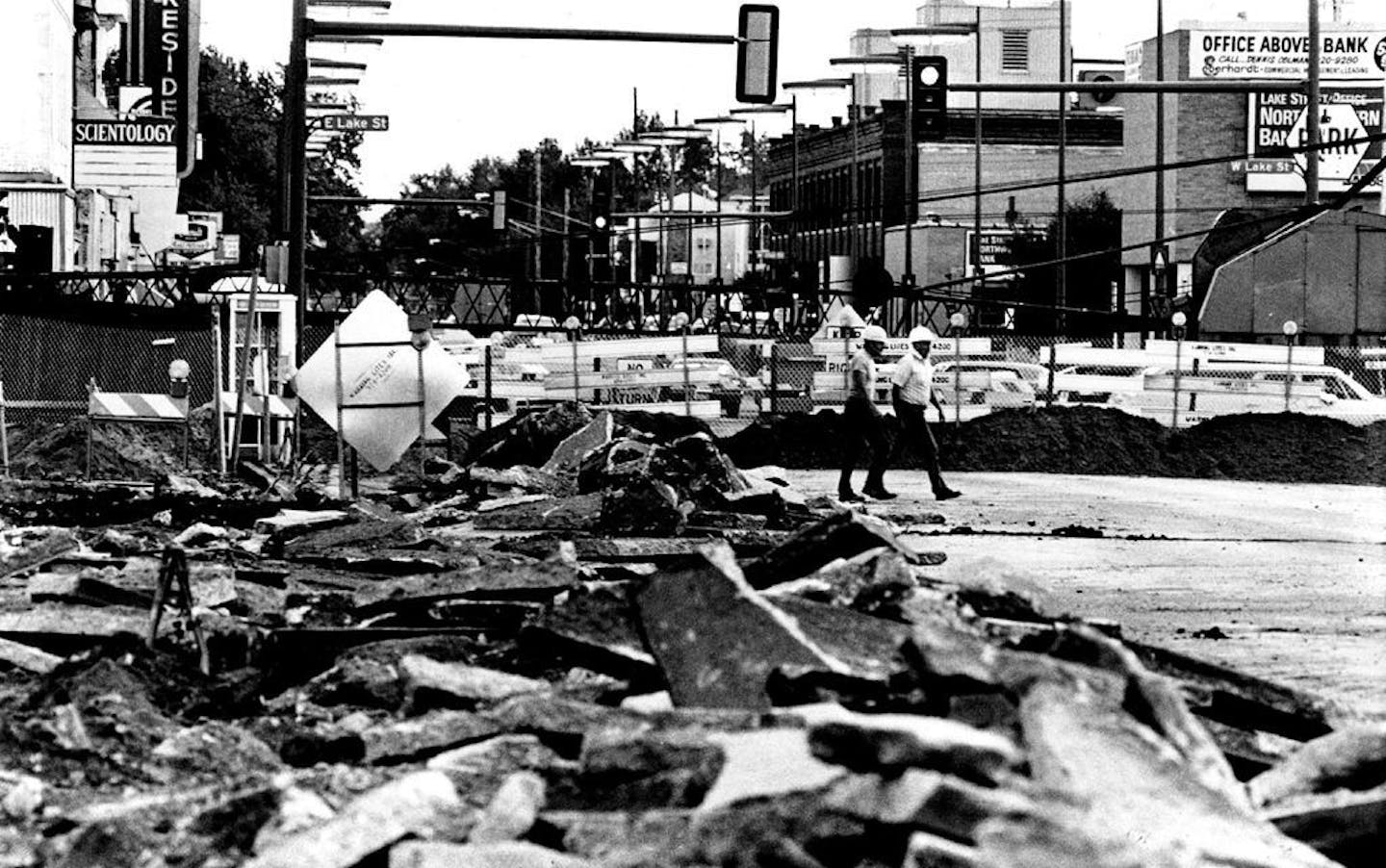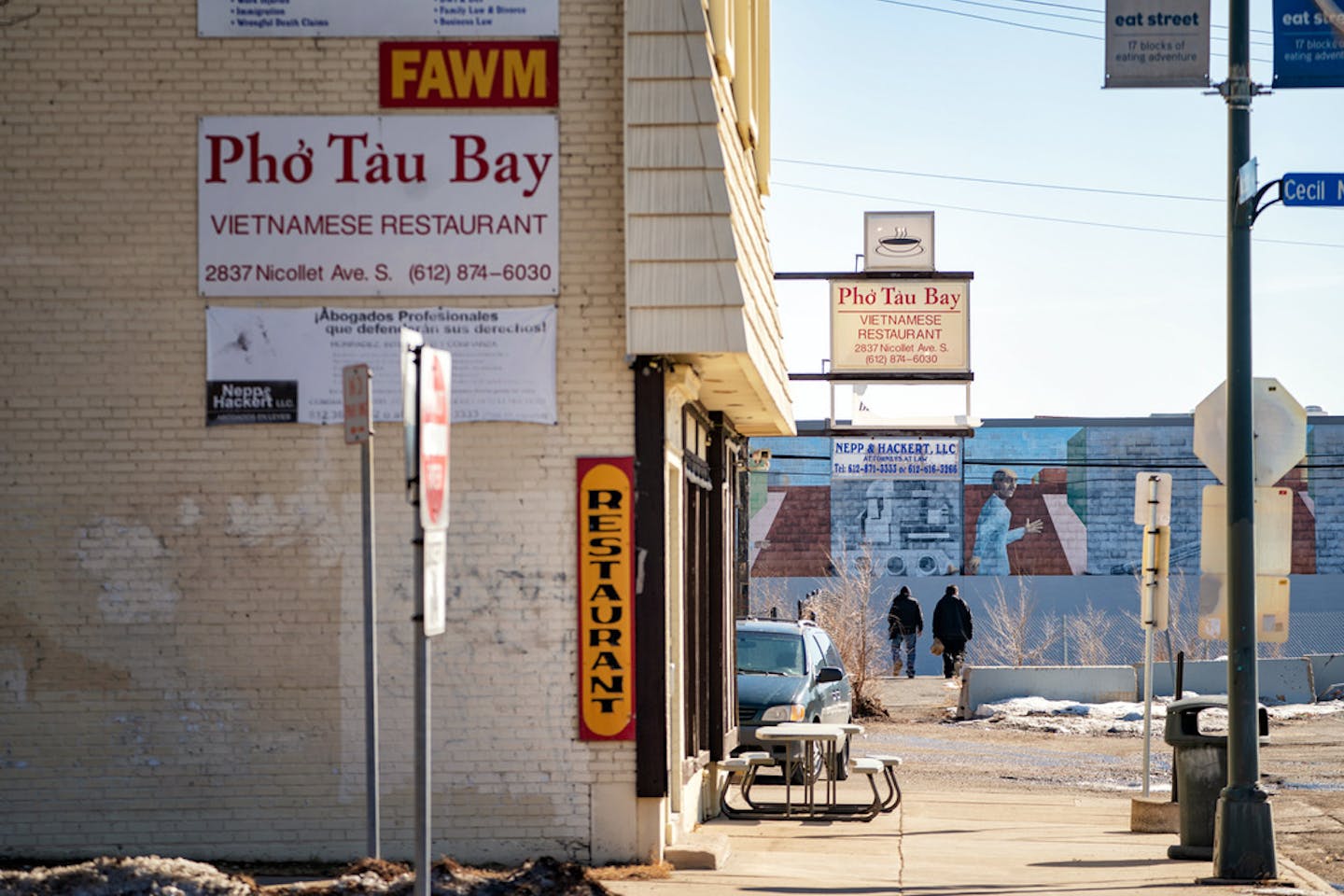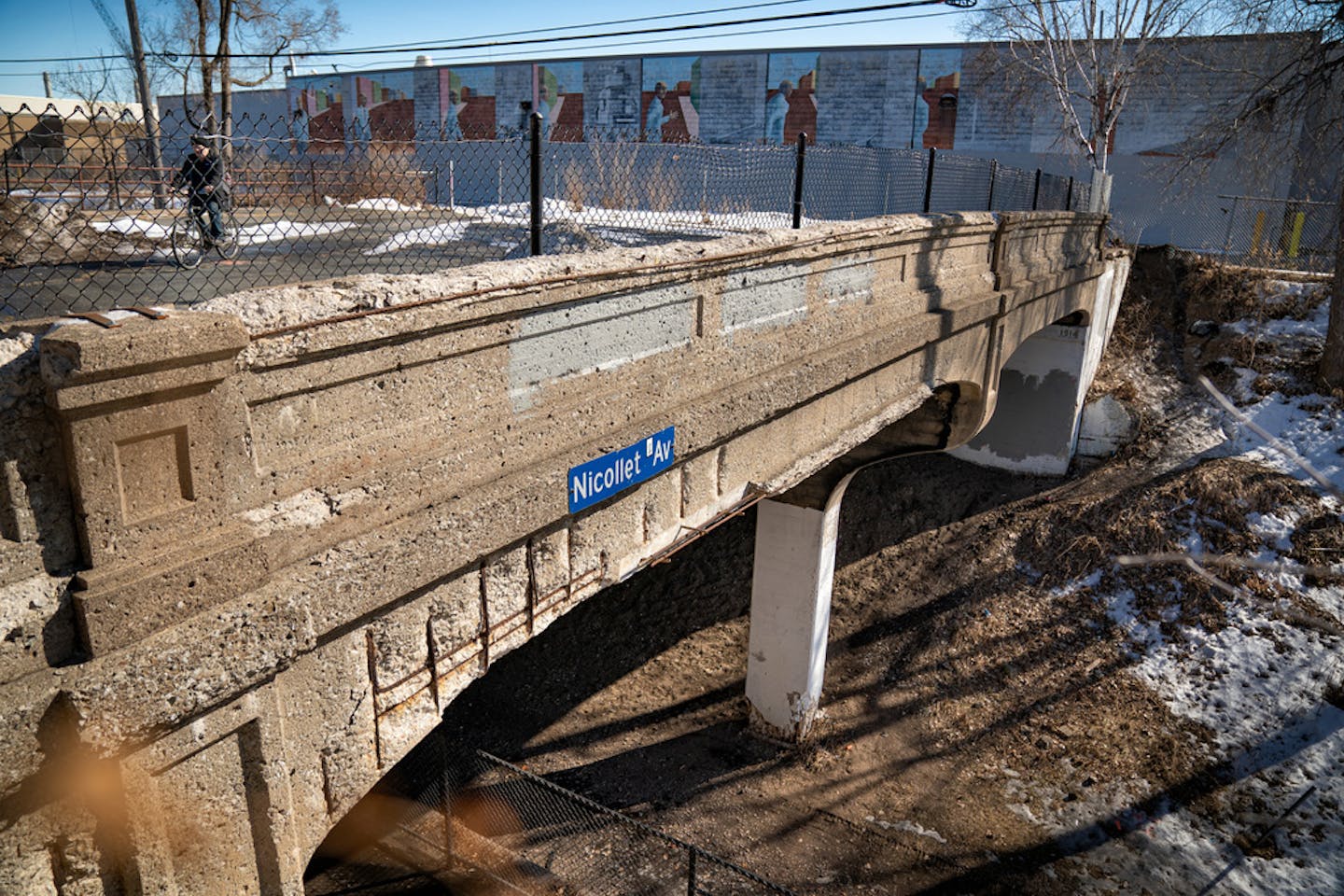In early March, the Minneapolis City Council approved a $9.1 million settlement to end its lease with the Kmart that was built in the 1970s in the middle of Nicollet Avenue at its junction with Lake Street.
The announcement marks one of the most important neighborhood renewal opportunities that Minneapolis has seen for decades.
Under the agreement, the city buys the land under Kmart and the Supervalu grocery store next door, effectively opening 9 acres for redevelopment, plus an additional acre to restore the street in the middle of the site.
This is ironic because the city supported the Kmart development in the 1970s, hailing it as a historic opportunity.
At the time, however, city officials were trying to address rapid flight of middle-class families to the suburbs and a decreasing population. The promise of gleaming, new suburban-style strip mall and nearby apartment buildings proved irresistible.
To stem suburban flight, the city became more suburban itself — with policies allowing, and often encouraging, new strip malls set back from the street with parking lots, parking ramps and low-rise light industrial parks.
The closing of Nicollet Avenue also came on the heels of 15 years of tearing out and dividing neighborhoods for new freeways. It's likely that closing part of one street, even a major thoroughfare, seemed like a small sacrifice to make in the service of a greater good.
But the Kmart saga ended up becoming a powerful lesson for a city that has often leapt at quick design fixes rather than considering the resilience of older neighborhoods and the local businesses they supported.
Our strength as a city — and as a region — lies in part in the time-tested practicality of older streets, with their varied densities in housing, mixed uses and transit options.
Fine-grained yet well-connected cities have proved to be surprisingly adaptable to economic downturns, new technologies, and the demands of climate change.
It's this kind of urban neighborhood character can flourish as Nicollet Avenue reopens and the Kmart site is redeveloped in the next five years.
Nicollet can become itself again — a major corridor stretching all the way from Burnsville to the Minneapolis Central Library.
But this time around, the street will take advantage of transit options unforeseen in the 1970s, such as a Bus Rapid Transit (BRT) line similar to the A Line in St. Paul, which links Rosedale to the MSP airport and Mall of America. A BRT on Nicollet could run to northeast Minneapolis and beyond via Central Avenue, connecting thousands of people and jobs.
History shows that, if available, a rich array of transit options will boost Nicollet's commercial and economic activity. For this reason, the new Nicollet must include better bike lanes and connections to the Midtown Greenway.
The intersection of Nicollet and Lake could become the first of many clustered, transit-oriented developments along Nicollet, creating a rich urban fabric similar to the one shaped by the streetcars over a century ago.
The revival of Nicollet will no doubt impact Eat Street, the stretch of Nicollet from about 15th Street to 28th Street that's home to a diverse mix of restaurants. Its success is likely to spread, extend to the north and south, offering more dining choices.
With the revival of Midtown, people will be able to bus, bike or walk to a destination. They may stroll for blocks, stopping at shops, sampling from restaurants. Or they may walk with no particular goal in mind, becoming part of the streetscape and its flow of people.
Being able to enjoy a shared space with others is an essential part of health and wellness in city life.
With the coronavirus, most of us are at home, isolated in our private worlds. When the threat from COVID-19 has passed, and we are once again outside enjoying the spontaneity and choice our urban environment has to offer, let's remember what we missed while we were home alone.
Shared places create shared experiences, both of which are often lost in reactive design solutions, that sustain us over time.
The reopening of Nicollet is a chance to start anew.
Frank Edgerton Martin is a landscape historian and consulting writer for architecture and design firms.









